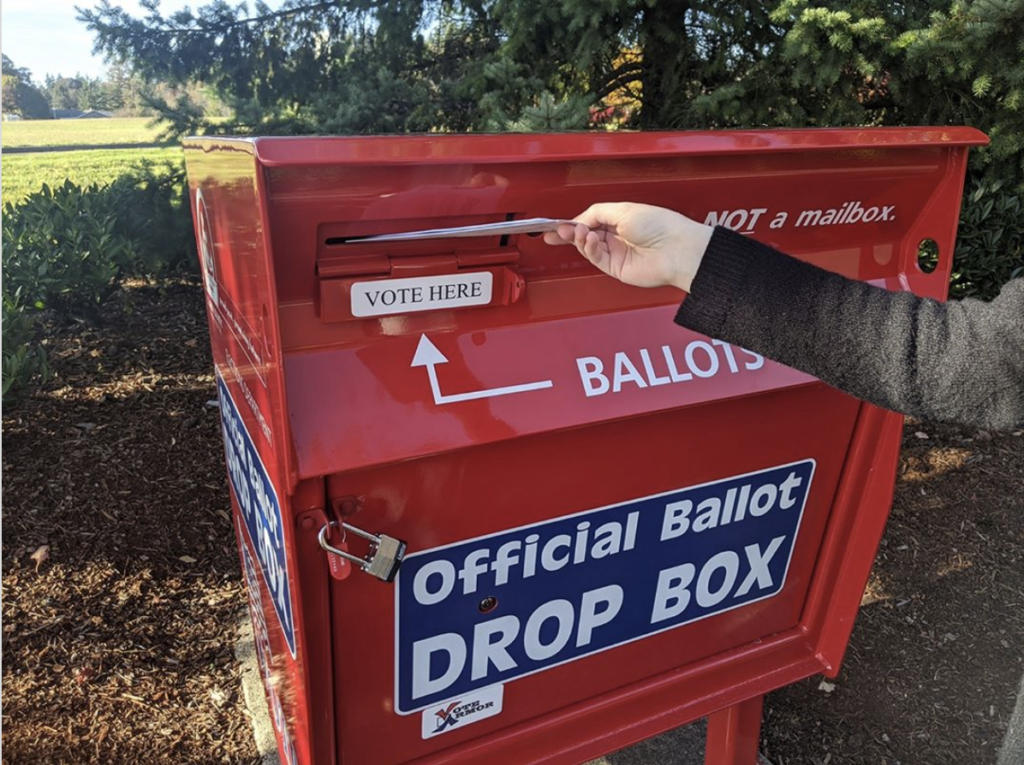In today’s politics, some believe young people do not race to the polls like older generations. Truth be told, college students are often blamed for the lack-of-voting phenomenon, coined as the term “voter apathy.” While there are several reasons behind the gap in generational votes, The VanCougar asked students about their decision to vote, and why, or why not, they believe their vote counts.

Considering the context behind student votes, Paul Thiers, associate professor in political science and public affairs, said he chooses to avoid the term “voter apathy” when describing individuals who cannot vote either by restriction or choice.
“Most of the reasons why young people vote in lower numbers is because of registration barriers, and because they are poor. Research that asked people why they did not vote, for young people, the most likely reasons are, ‘I cannot get off work’ and ‘[I have] no transportation,’” Thiers said.
However, despite some of these obstacles, college students can still make up a large percentage of eligible voters throughout the U.S. Thiers said he has seen more young people interested in exercising their right to vote today, versus in past elections.
“I think that more so than I’ve ever experienced, young people seem aware that elections really matter. And so I believe that young people are more interested in voting now than they ever have been before,” Thiers said.
Regan Smith, a sophomore at WSU Vancouver studying special elementary education, said the 2020 presidential election will have been the first time she has ever exercised her voting rights. Smith plans to vote in all future elections, both locally and nationally.
“Voting is extremely important. Having the right to vote allows citizens to have a say in who runs the nations, what acts they do and do not support, allowing their voice to be heard and what they hope to be able to achieve in the future. Voting is also one of the key components of keeping us a democracy, not a dictatorship,” Smith said.
“I believe that young people are moreinterested in voting now than theyever have been before.” – Paul Thiers

Katherine Orth, a U.S. Marine Corps veteran and a junior at WSU Vancouver majoring in political science, said she has voted in every state, local and national election since she was old enough to vote. Orth’s service to the military has also impacted her decision to vote in the 2020 election, and in the future.
“I feel that I have an obligation to exercise my right to vote. I served in the military to preserve the rights and freedoms of [U.S.] citizens, and suffragettes had to fight for women’s right to vote. Not voting, for me, would be against the constitutional oath I took when joining the military. Right now, my only way to support and defend the Constitution from all enemies foreign and domestic is to vote whenever there is an election and especially now,” Orth said.
Urging people to vote, Orth said the 2020 presidential election is a historical moment in American politics, which could impact the lives of so many who live in the U.S. She referenced changes to the Affordable Care Act, reproductive rights, and other aspects of healthcare.
“This election is the most important election of our lifetimes. With the Affordable Care Act and pre-existing conditions on the line during the worst pandemic in a century… We must come together as a nation and vote like our lives depend on it because they do,” Orth said.
Thiers stated many other significant changes could take place in the next few years, but it all comes down to the outcome of the election.
“Elections really do matter. For all kinds of outcomes, the strength of the democracy, the continuation of the political system, but especially elections matter for specific policy areas, tax rates, college tuition,” Thiers explained.
The 2020 presidential election depends on the votes of millions, including young people and college students. To learn more about voting or other government resources, visit the USA government website for more information.

Olivia is a senior studying English at WSU Vancouver.
